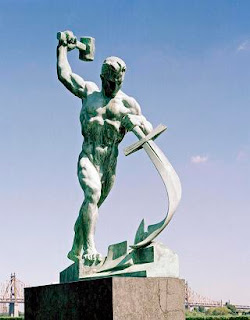Tomorrow marks the beginning of a new lectionary cycle, also known as Year A. We call it the First Sunday of Advent, and our reading concerns the word that Isaiah saw. That word is mostly about eschatology or the ‘end times;’ for Christians, this means the second coming of Christ.
The hope we share this first Sunday is the hope of the kingdom to come. We pray for it in the Lord’s Prayer: “Thy kingdom come, thy will be done, on earth as it is in heaven.” Advent is about expectation, the hope for a better world, a just world, and a new world.
In Deuteronomy 18, the Lord says:
You may say to yourself, ‘How can we recognize a word that the Lord has not spoken?’ If a prophet speaks in the name of the Lord but the thing does not take place or prove true, it is a word that the Lord has not spoken.
So how do we know Isaiah is not a false prophet, since his words – God’s words – have not come true?
How can they be true when we live in a world of wars and rumors of wars? It is us who must start living as if the promises Isaiah saw were true. Isaiah tells us, “Come, let us walk in the light of the Lord!” We have to practice peace, in our homes and in our communities. We have to practice justice and reconciliation. God’s words are not empty. We are expected to wait for God to reveal the word, to share the word, and we are expected not just to listen to it but to see it as reality. As Christians, we have to take God’s words and God’s challenges seriously, and work to create that reality.
Our current world is a frightening place. Isaiah sees something that is not yet here: God’s creation as God intended it to be – peaceful, whole, healed, and reconciled. Interestingly, Isaiah also tells us that they shall beat their swords into ploughshares, their spears into pruning hooks – but makes no mention of our swords or our spears. The nations shall forget how to go to war but we will not be left unarmed.
Hopeful people not only pray for the coming of the Kingdom; they work for it too. To hope for justice and peace is to work for it. To hope for a time when all children are fed and properly housed is to do more than just complain about it; it is to find some children to feed and house and then feed and house them. Realizing our hope is a constant struggle.
In 1995, South Africa set up a truth and reconciliation commission in the wake of the break-down of apartheid. The entire nation engaged in a wrenching exercise in truth-telling and forgiveness, and is the better for it now. Archbishop Desmond Tutu said, “First, people prayed for us.” Eugene Boring wrote, “If the Christian community is to be a ‘house of prayer for all nations,’ it must be a forgiving community, for only forgiveness makes it possible for people to live together.”
Just as we are invited to walk in the light of the Lord, we will all be invited to share a meal at Christ’s table. Jesus said, “Do this in remembrance of me.” And what we are called to remember is that we gather in peaceful fellowship as a community, imperfect, not entirely whole, but a community nonetheless, as a house of prayer, to live into the hope of Advent.
Amen.
About the art:
The bronze sculpture, Let Us Beat Our Swords into Ploughshares, was created by Soviet artist Evgeny Vuchetich (1908-1974), and presented to the United Nations on 4 December 1959 by the Government of the USSR.
The sculpture depicts the figure of a man holding a hammer aloft in one hand and a sword in the other, which he is making into a ploughshare. It is meant to symbolize man's desire to put an end to war, and to convert the means of destruction into creative tools for the benefit of mankind. It is located in the North Garden of the United Nations Headquarters.
From: Art in the Christian Tradition, a project of the Vanderbilt Divinity Library, Nashville, TN.

